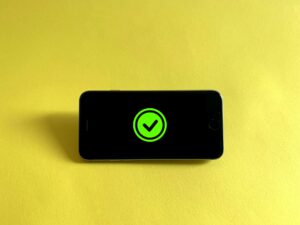How to Create Strong Memorable Passwords

How to Create Strong Memorable Passwords
When it comes to securing your online accounts, the first line of protection is the password. Despite this, a large number of individuals continue to depend on weak, readily guessed combinations such as basic phrases, names, or predictable sequences of numbers. It is necessary to have a strong password in order to ensure the security of your data; yet, it is also important that the password be memorable enough so that you can remember it each time you log in. The secret to success is finding the perfect equilibrium between ease of use and intricacy.
The Importance of Using Strong Passwords
Brute force assaults, dictionary-based guessing, credential stuffing, and other advanced approaches are being used by hackers as cyberattacks get more and more complex. Your accounts are susceptible to identity theft, data loss, and financial fraud if you choose to use weak passwords since they can be broken in a matter of seconds. If you choose a strong password, it will take a substantially longer amount of time and effort to break into your account, which will deter attackers from attempting to do so in the first place.
Features of a Robust Password
A password that is secure should be:
- A minimum of twelve to sixteen characters is required in order to make cracking the code more difficult.
- A blend of capital and lowercase characters, numerals, and symbols.
- Unpredictable and not based on commonly used terms, dates, or personal information
- Individual to each account, which reduces the chance of a single compromise revealing all of your login credentials.
Why Memorable Passwords Are Important
While strength is vital, memorability cannot be overlooked. Writing passwords on sticky notes or using the same one everywhere is hazardous. Instead, the idea is to produce something powerful but simple for you to remember without depending on harmful behaviors.
Using Passphrases for Security and Memory
One of the greatest strategies is to use a passphrase. Instead of a single word, you blend multiple unconnected words into a lengthy phrase. For example, “RiverTreeClockMoon” is considerably harder to predict than a short random phrase, but it’s simpler to remember. Adding numbers and symbols in imaginative locations makes it much stronger.
The Power of Acronyms and Stories
Another way is to construct a password from a phrase. Take the initial letters of each word, mix with numerals or symbols, and you’ll have something both powerful and unforgettable. For instance, the sentence “My first dog loved to chase 3 squirrels!” may become “Mfdtc3s!”. Since it’s related to a personal memory, it’s simpler to remember while staying tough to predict.
Avoiding Common Mistakes
Many individuals weaken their passwords without recognizing it. Avoid:
- Using personal information such as names, birthdays, or preferred teams.
- Repeating the same password across several accounts.
- Relying on short, predictable patterns like “123456” or “qwerty”.
- Simple replacements like “Pa$$word” that hackers may predict quickly.
Making Each Password Unique
Even strong passwords might become a problem if repeated. If one website is hacked, attackers typically try the same credentials across multiple accounts. To protect yourself, use unique passwords for each service you use.
Using a Password Manager (Optional but Helpful)
If you struggle to remember many strong passwords, password managers can assist create and store them securely. They serve as a digital vault, requiring you to remember just one master password while handling the rest for you.
Regularly Updating Passwords
Another sensible practice is upgrading your passwords occasionally, particularly for accounts that retain sensitive information. While you don’t need to update them every month, rotating them every year or when a breach is announced keeps you safer.
Creating strong, memorable passwords doesn’t have to be complicated. By employing passphrases, acronyms, or personal anecdotes, you may construct secure combinations that are simple for you to remember but virtually hard for others to guess. With a few smart methods and practices, you may dramatically lower the danger of cyber attacks and keep your digital life secure.




